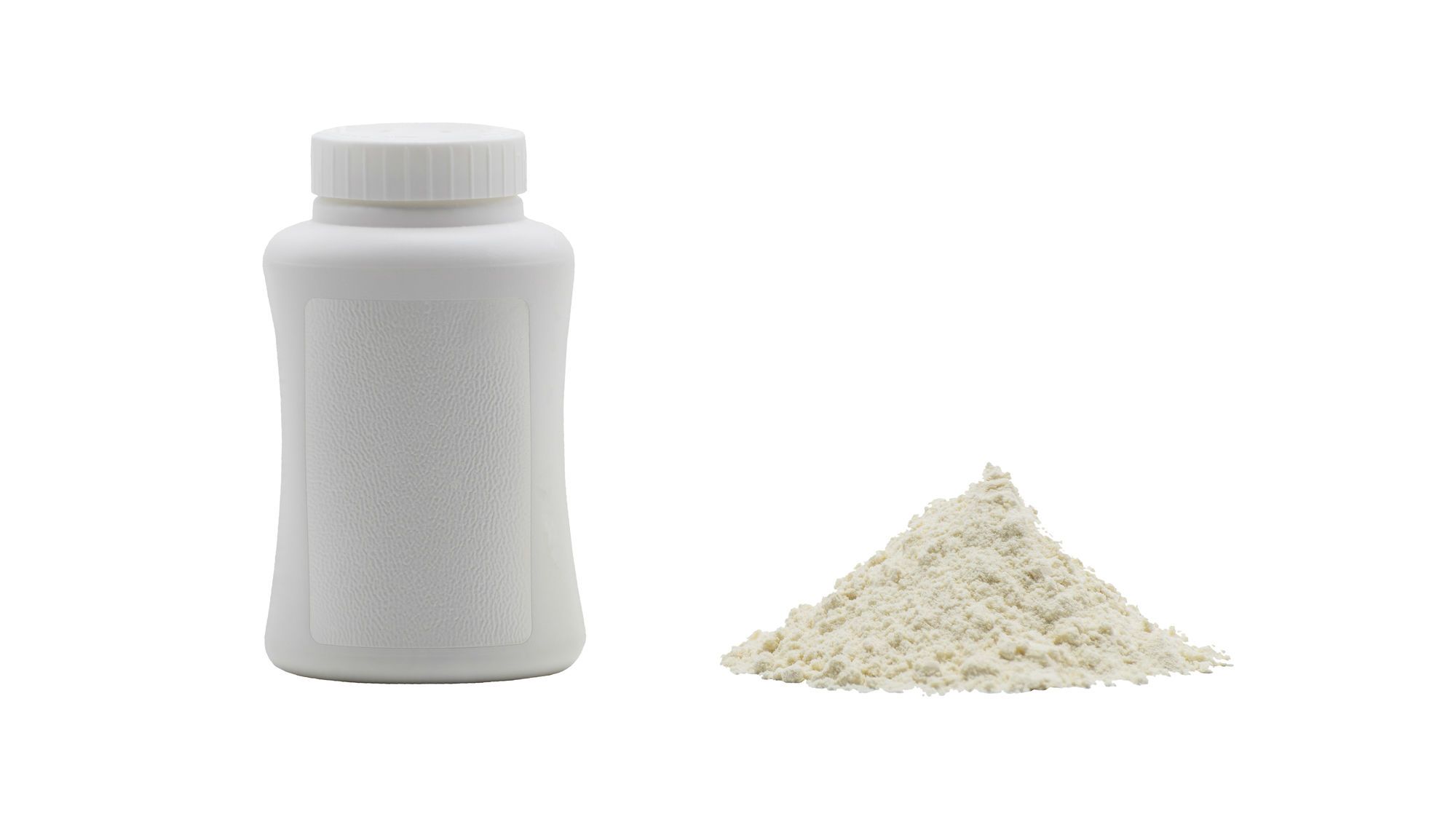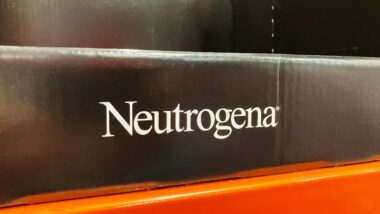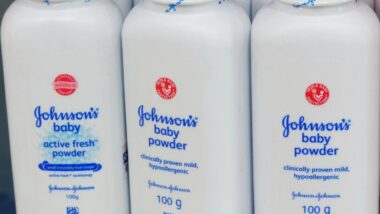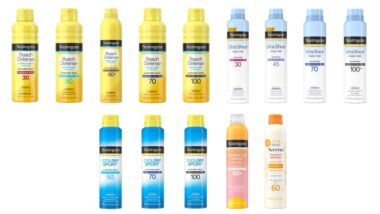Top Class Actions’s website and social media posts use affiliate links. If you make a purchase using such links, we may receive a commission, but it will not result in any additional charges to you. Please review our Affiliate Link Disclosure for more information.
In early December 2018, Environmental and Climate Change Canada warned the public that using baby powder or other talcum powder may be dangerous to your health, according to Business Insider.
Specifically, the government organization connected recent scientific investigations with data positively linking the long-standing habit of using baby powder to the genital region with ovarian cancer.
The article went on to reveal that 21 of 29 studies discovered a positive link between talc and ovarian cancer when applied to the perineal region as part of a daily hygiene habit.
Talc was the main component of Johnson & Johnson’s Baby Powder and former product known as Shower-to-Shower. It is also the mainstay ingredient in a variety of other body, face, and foot powders where cornstarch has not been substituted.
Because of the controversy surrounding the likely relationship to this form of cancer, the American Cancer Society has recommended since 1999 to choose products that use cornstarch rather than talc. DrugWatch lists several market alternatives to talc, including products based on cornstarch, baking soda, tapioca starch, arrowroot starch, oat flour, and more.
In August 2022, Johnson & Johnson made the decision to stop selling talc-based baby powder worldwide. Going forward, Johnson & Johnson’s Baby Powder will be made with cornstarch instead of talc. However, the company still faces thousands of lawsuits over it’s talc-based products.
Is ovarian cancer the only cancer linked to using baby powder?
Another type of cancer purportedly being connected to the application of cosmetic talc is mesothelioma. Mesothelioma is a very specific type of cancer related to inhaling or ingesting asbestos fibers.
Mesothelioma is known to commonly affect the tissue surrounding the lungs or pleura, according to the Mayo Clinic. It is also known to affect the tissue lining the heart, abdomen, and testicular sac.
The dust created from breaking up asbestos in the mining process is especially lethal. A certain amount of asbestos fibers located in the dust can remain in the body for decades and produces mesothelioma after contributing to DNA changes in cells.
Although commonly associated with workers in the construction and shipbuilding industries where exposure to asbestos was ongoing, new litigation claims that inhaling talc contaminated with asbestos through personal application can and has produced this rare and lethal cancer in some.
Talc is mined from the earth and contains particles of oxygen, magnesium, and silicon which give it a moisture-absorbing capacity, per The New York Times.
Asbestos, determined to be a human carcinogen, is often found in close proximity to talc in nature. Asbestos is a group of six minerals which include chrysotile, crocidolite, amosite, anthophyllite, tremolite, actinolite.
Proving causation of mesothelioma from baby powder in court depends on being able to prove contamination with asbestos. As indicated by the American Cancer Society, a division of the World Health Organization (WHO) known as the International Association for Research on Cancer (IARC) identifies talc tainted with asbestos fibers as definitively carcinogenic to humans.
The IARC also claims, however, that it has a lack of human study data supporting the notion that inhaled talc without asbestos contamination is carcinogenic. IARC is unable to draw conclusions with limited animal studies in labs and this hole in scientific investigation on humans. The conclusion is that there is no conclusion—non-contaminated talc cannot be classified as cancer-causing, but neither can the possibility be ruled out.
Litigation history concerning baby powder–caused cancers
In 1997, a woman filed the earliest lawsuit on record seeking to prove that Johnson & Johnson’s Baby Powder caused a plaintiff’s cancer, according to a major investigation by Reuters. The complainant, Darlene C. along with her husband Roy filed their lawsuit in Beaumont, Texas County Court.
Counsel for the plaintiff was able to secure a lung pathology report which determined that Darlene’s respiratory tissue was afflicted with at least four different types of asbestos fibers. The pathology report claimed that this conclusion was consistent with talc exposure contaminated with chrysotile and tremolite.
Darlene’s attorney sought to obtain internal records from Johnson & Johnson concerning talc production and testing as far back as the 1940s and extending through the ’80s, according to Reuters. The defendant balked and claimed in a filed motion that no usable evidence would come to light from this request.
In actuality, a letter had been received by the giant personal care giant a week before this May 6, 1998 attempt to block discovery. A geologist employed by Rutgers University claimed she had found tremolite needles in baby powder made by Johnson & Johnson in a scientific investigational study which had been published in 1991.
The judge in the case refused to allow counsel time to rebut the defendant’s dismissal of the discovery process. Without further evidentiary support, Darlene and her husband were finally forced to dismiss their case. She passed away without having a clear answer to the cause of her cancer.
Darlene’s effort, however, set the stage for further litigation concerning the role baby powder application had to subsequent diagnoses of ovarian cancer and mesothelioma.
There are currently about 25,000 lawsuits pending against Johnson & Johnson over its various talc products, reports Asbestos.com. The company has set aside $3.9 billion for talc-related litigation.
A number of talc cancer lawsuits have led to significant settlement amounts and awards. In May 2018, a big victory was won for a 68-year old woman seeking to connect her mesothelioma with daily talcum powder use. The California Court ordered Johnson & Johnson to pay out a compensatory award in the amount of $25.7 million.
A lawsuit filed by 22 women over baby powder ovarian cancer resulted in a $4.69 billion award, reduced to $2.12 billion. Johnson & Johnson is currently appealing that award to the U.S. Supreme Court.
Another talc cancer lawsuit was decided in favor of the plaintiff, per Reuters. The California jury awarded the complainant $29 million in support of her claim that Johnson & Johnson’s baby powder caused her to develop mesothelioma.
Plaintiff Terry L. claimed that she religiously used the defendant’s baby powder and Shower to Shower products for a minimum of two decades during the ’60s and ’70s. This was the first of several trials scheduled for 2019 and involved over two months of expert testimony from both sides of this highly controversial issue.
The conclusion reached by the jury was that the products used by the plaintiff were contaminated with asbestos. The company was found to be negligent in warning consumers of the potential risks involving in using this product, relying upon its advertised claims of safety and purity at all costs.
Many plaintiffs have claimed in their lawsuits that Johnson & Johnson was aware of the cancer risk associated with its baby powder products for decades.
The lengthy Reuters investigation found that a lab which Johnson & Johnson consulted as far back as the late 1950s identified contaminants in talc from Italian supplier as needle-like tremolite, one of the six fibrous asbestos minerals. Laboratory findings from various tests in subsequent years revealed like findings, referring to the contaminants as rod-like or fiber-form. The household product giant had its talc tested three times by three different laboratories, according to internal documents, in 1972 and 1973.
Johnson & Johnson told the U.S. Food and Drug Administration (FDA) that no form of asbestos had been isolated in any sample of their talc between the end of 1972 and the fall of 1973, according to Reuters. In fact, the results of their behind-the-scenes testing indicated high levels of contamination.
This claim was presented while the oversight agency was determining what limits would be placed on the presence of asbestos in cosmetic talc products in 1976.
Pursuing talc cancer litigation
Johnson & Johnson says it intends to continue to appeal all lawsuits which have favored its opponents and is confident in their ability to do so. Individual litigation continues to be filed at various court levels. In federal court, a multidistrict litigation has been set up in the U.S. District Court for the District of New Jersey, where tens of thousands of cases from across the country have been transferred so that they can be handled together by a single court.
If you have regularly used Johnson’s Baby Powder or Shower to Shower body powder for at least five years and have since been diagnosed with ovarian cancer or mesothelioma, you may be able to file a lawsuit and pursue compensation.
Filing a lawsuit cannot take away the pain and suffering caused by a cancer diagnosis, nor can it bring a loved one back to life, but it can at least help to alleviate the financial burden incurred by medical expenses, lost wages, and more.
Filing a lawsuit can be a daunting prospect, so Top Class Actions has laid the groundwork for you by connecting you with an experienced attorney. Consulting an attorney can help you determine if you have a claim, navigate the complexities of litigation, and maximize your potential compensation.
Do YOU have a legal claim? Fill out the form on this page now for a free, immediate, and confidential case evaluation. The attorneys who work with Top Class Actions will contact you if you qualify to let you know if an individual lawsuit or class action lawsuit is best for you. [In general, baby powder cancer lawsuits are filed individually by each plaintiff and are not class actions.] Hurry — statutes of limitations may apply.
ATTORNEY ADVERTISING
Top Class Actions is a Proud Member of the American Bar Association
LEGAL INFORMATION IS NOT LEGAL ADVICE
Top Class Actions Legal Statement
©2008 – 2024 Top Class Actions® LLC
Various Trademarks held by their respective owners
This website is not intended for viewing or usage by European Union citizens.
Get Help – It’s Free
Join a Free Baby Powder Cancer Class Action Lawsuit Investigation
If you used Johnson’s Baby Powder, Shower to Shower, or another talcum powder product and were diagnosed with ovarian cancer, you may have a legal claim. Family members of loved ones who died of ovarian cancer can also join. Submit your information now for a free case evaluation.
An attorney will contact you if you qualify to discuss the details of your potential case at no charge to you.
PLEASE NOTE: If you want to participate in this investigation, it is imperative that you reply to the law firm if they call or email you. Failing to do so may result in you not getting signed up as a client or getting you dropped as a client.













